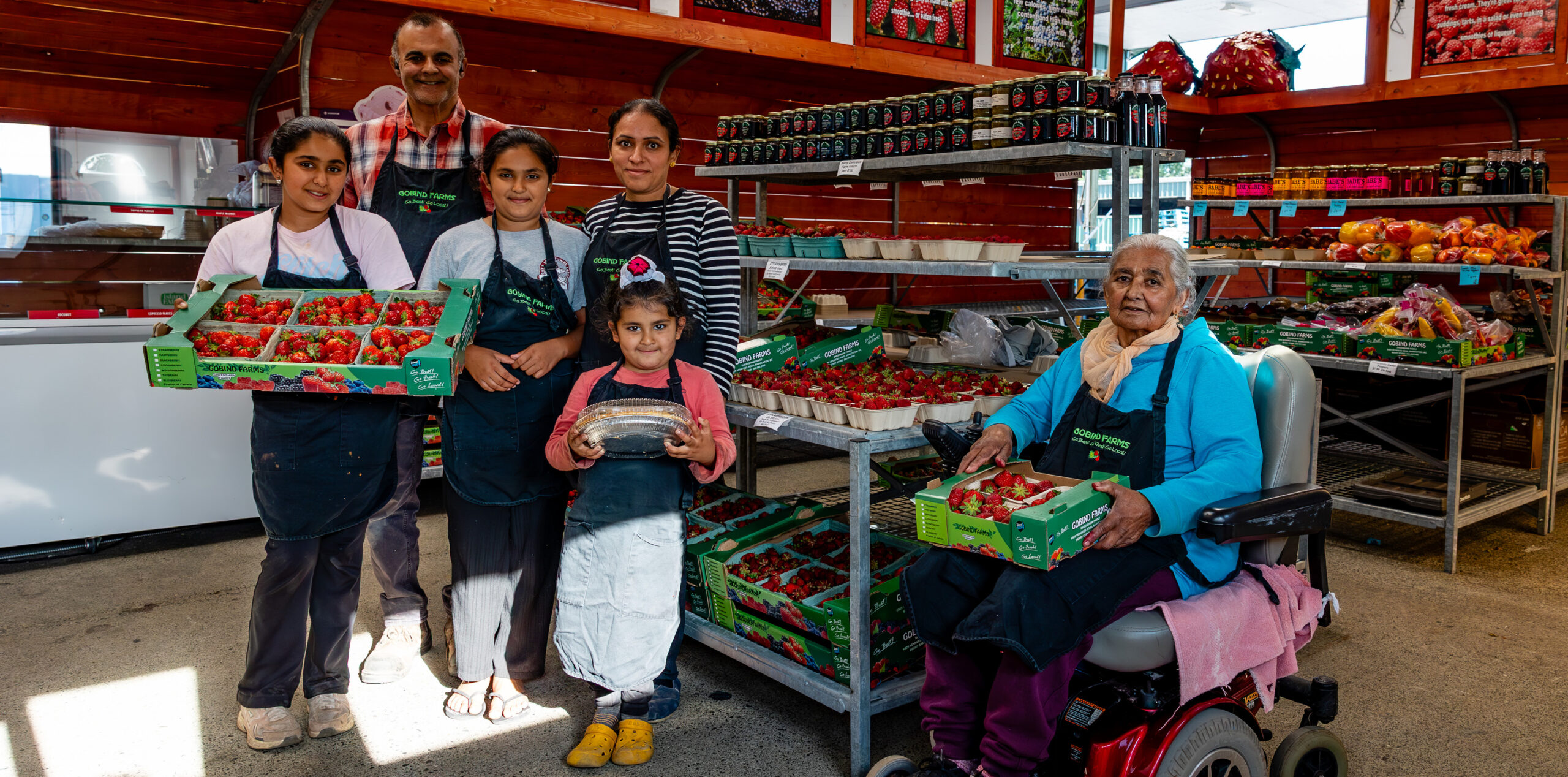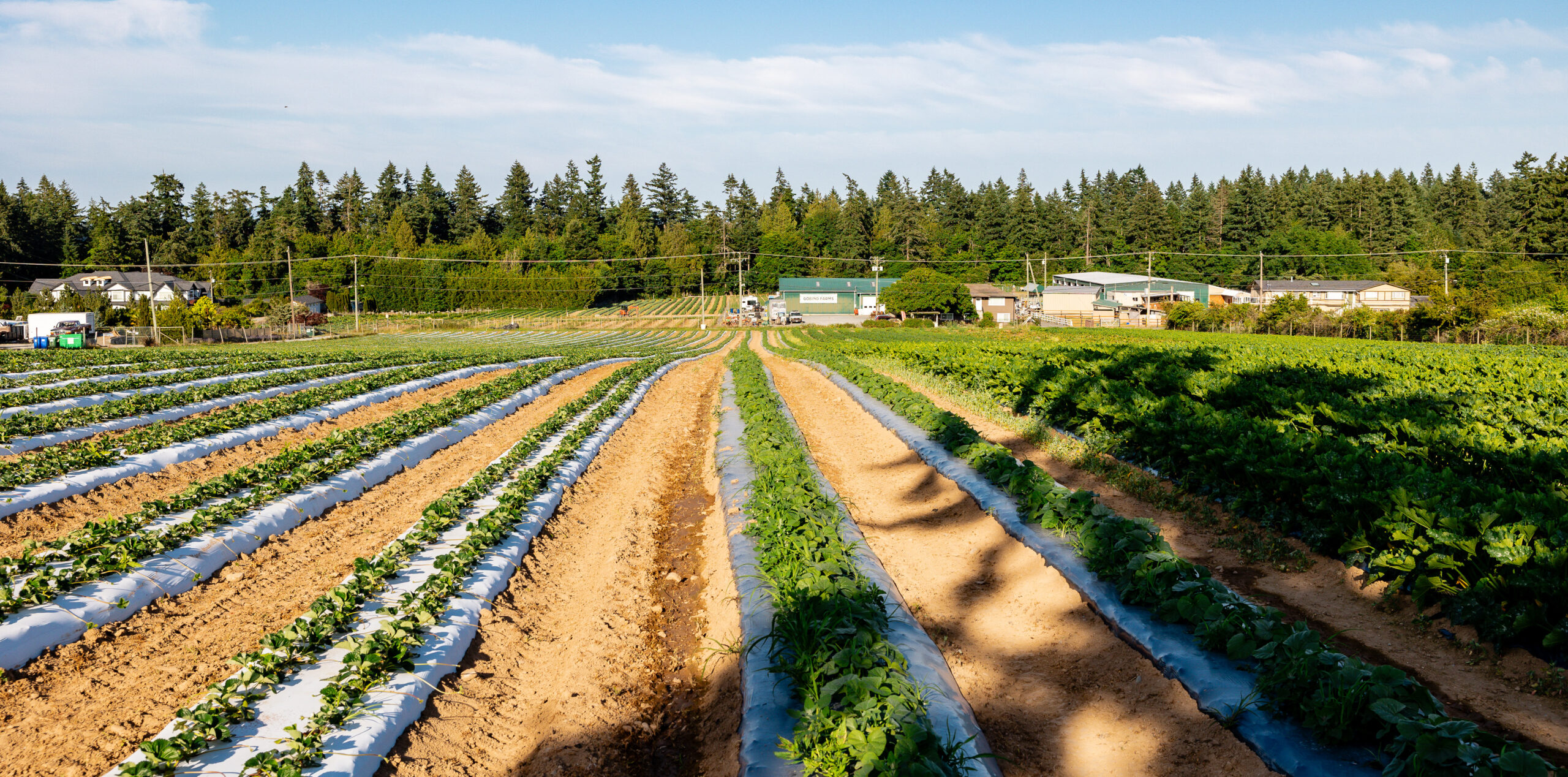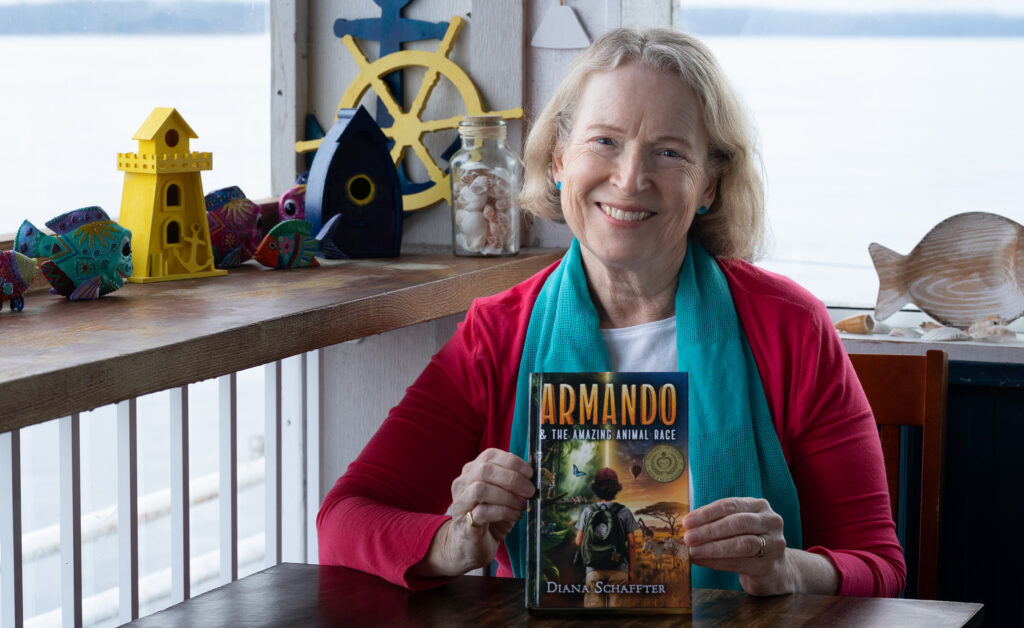Words Jo Barnes
Photos Sarah Hartley Photography
“I made a promise to my dad.” Satnam Dheenshaw, of Gobind Farms, promised his father when he took over the operation of the farm that he would continue his father’s legacy of a family farm that is the very model of an immigrant success story.
What began over 40 years ago as a five-acre field growing a few varieties of vegetables and strawberries has grown to almost 100 acres producing an extensive line of vegetables and diversity of berries.
“My dad Harbhajan emigrated to Canada from India in 1970. He had $10 in his pocket,” shares Satnam. “He worked for a sawmill. When it shut down, he decided to go back to farming. My dad had worked on his own farm in India. In 1980, he purchased five acres of land on the Peninsula.”
Drawing upon his farming experience, Harbhajan built a farm that prospered. It meant hard work and dedication, often involving his children in the work. “I learned work ethic from my dad,” says Satnam. “I remember coming home from school. We would do our homework and then we’d have to go and work. When I was older, I used to work a double shift: work the graveyard shift at the local grocery store, sleep for a couple of hours, and then go out and work at our farm.”
Gobind Farms is still a place where farm and family are tightly woven. “As well as the demands of caring for our growing children, my wife Rupi oversees the farm market. My mom packs berries and helps at the market,” relates Satnam. “They both work very hard.”
Seasonal farm workers are very much valued members of the Gobind Farm family. They’re involved in work from planting to harvest and are key to its success. “We have housing on site for 21 employees. We know them well; they are like family,” relates Satnam. “Birthdays are recognized. We celebrate and have birthday cake for people.”
Since taking over the farm in 2016, Satnam has strived to maintain the family legacy and the farm’s strong position in the farming community. “You have to have a passion for what you do and not be afraid of hard work,” he says. “As well as through our retail farm stand, we sell wholesale through the IVCA (Island Vegetable Coop Association). I have been a director for IVCA for over 25 years.”
Gobind Farms, one of three growers on the Peninsula with the IVCA, offers direct produce delivery to numerous grocery stores. “Our berries are delivered to Thrifty Foods stores all the way to Parksville and Campbell River,” Satnam comments. “The list includes: strawberry, raspberry, blackberry, blueberry, loganberry, boysenberry, tayberry and haskap berry.”
Gobind Farms, however, is much more than a successful berry producer. “We grow romaine and green leaf lettuce, garlic, kale, rhubarb, 12 varieties of squash, cucumber, zucchini, red and green cabbage, cantaloupe and melons,” outlines Satnam.
This robust produce menu requires a substantial team of who understand the tasks. “In peak season, we have a crew of up to 40 people,” notes Satnam. “It’s all hand-planted. For example, with strawberries, we planted around 100,000 plugs (young plants). We have about 12 people who do this. They come from the Philippines and Mexico, some who have been coming here for 10 to 12 years.”
Maintaining a farm of this size with such high volumes hinges on deep practical knowledge and commitment. Even though he has years of experience, Satnam is constantly striving to stay current with his farming techniques. “In agriculture, you have to keep up with everything, such as the latest technology,” he says.
Biological pest control, which involves beneficial predators or parasites controlling pests and diseases, is one of these modern farming methods. “We don’t use pesticides or chemicals. We use biological control products through Bioline,” relates Satnam. “This
is effective and doesn’t harm the environment.”
Good organization is critical to a smooth-running operation. The farm equipment shop illustrates this well. “We have a full shop; it’s very organized. It’s important to be able to find what you’re looking for in terms of tools and equipment,” says Satnam.
This high level of organization was recently recognized by one of the farm’s corporate partners, which stated: “Gobind is the most efficient farm we’ve ever seen.”
Satnam knows that good planning is crucial, too. “Timing is everything,” he says. “We have plants coming up every week and planting is done in stages. Otherwise, you might end up having to sell hundreds of thousands of plants in one shot!”
It has been over four decades since the first harvest, and the farm garden has dramatically expanded. But the goal of growing premium quality, tasty, healthy produce in a sustainable way is the same. It is Satnam’s promise to his father and to the community they serve.
www.gobindfarms.com






